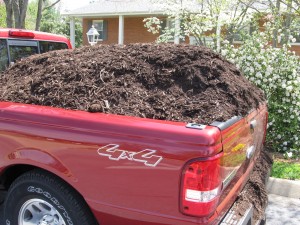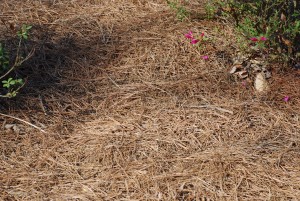Mulches aid in retaining soil moisture and reducing weeding chores. Over the years organically-based mulches gradually improve garden soils. Organic mulches are basically recycled bark, branches, twigs and leaves (including needles). Frequently they are organic by-products from the logging industry. Grass clippings and straw are also mulch sources. Hay is usually full of weed seeds which defeats the purpose for using it.
Over the years pine bark, nuggets, and needles tend to slightly acidify as they decompose in the soil. Oak leaves also tend to be acidic. These mulches are highly beneficial around acidic-loving shrubs such as blueberries, azaleas, rhododendrons, mountain laurels (Kalmia spp.), and others. Hardwood based mulches, ground from wood waste from most trees and evergreens, turn the soil slightly alkaline (raise soil pH) as it decomposes.
Fall applied mulches tend to act as a warming blanket, trapping in ground heat. The mulch blanket prolongs root growth in autumn by many weeks. Spring applied mulches may retard plant growth around newly planted perennials and annuals. Year-round mulching keeps ground surface temperatures cooler that benefits certain tree and shrub species. Never pile mulch up against the trunks of trees and shrubs as it often results in wood decays and/or formation of above ground roots.
Mulch should not be spread around recently planted fruit (and maple) trees unless the trunks have been protected by rodent guards around their base. In the winter pine voles will nest under the mulch and gnaw on the sugary sap of the fruit trees. Fruit trees after two years no longer need to be protected.
Finally, a warning about mulch quality. If a mulch pile is excessively steamy (over 100 ºF) or exudes a distinct alcohol smell, do not purchase or accept delivery. The product will likely burn young landscape plants, particularly herbaceous perennials and annuals. Yes, mulches may attract termites, carpenter ants and other wood boring insects.



 Posted in
Posted in 
